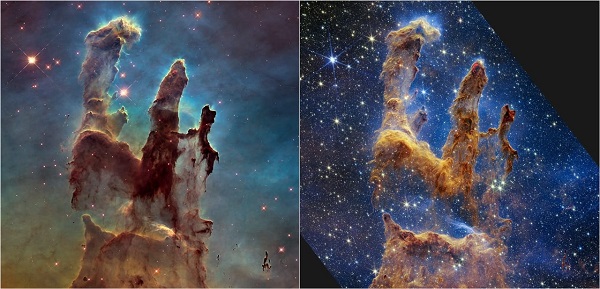According to the space agency, the three-dimensional pillars look like majestic rock formations but are far more permeable. These columns are made up of cool interstellar gas and dust that appear, at times, semi-transparent in near-infrared light.
“Webb’s new view of the Pillars of Creation will help researchers revamp their models of star formation by identifying far more precise counts of newly formed stars, along with the quantities of gas and dust in the region,” NASA said in a statement.
“Over time, they will begin to build a clearer understanding of how stars form and burst out of these dusty clouds over millions of years,” it added.
The space agency said that the newly formed stars are the scene-stealers in the images from Webb’s Near-Infrared Camera (NIRCam).
The James Webb Space Telescope is said to be the world’s premier space science observatory.
NASA said it would solve mysteries in our solar system, look beyond to distant worlds around other stars, and probe the mysterious structures and origins of our universe and our place in it.
Recently, James Webb Space Telescope captured the clearest view of Neptune’s rings in more than 30 years.








